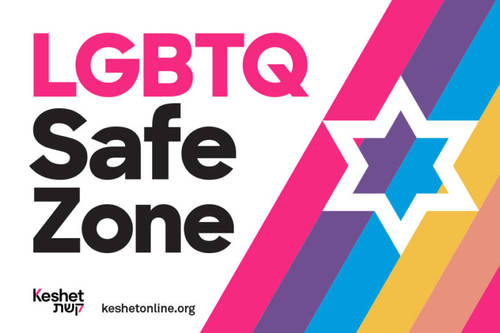The Jewish Case for Protecting Immigrants & Refugees in Trump's America
12/09/2016 10:40:48 AM
| Author | |
| Date Added | |
| Automatically create summary | |
| Summary |
Since the U.S. election, I’ve been reflecting about how Jewish values might lead us, regardless of our political leanings, to relate to the incoming Trump administration.
I’ve concluded that the Jewish tradition would insist we judge our leaders based on the extent to which they advance an agenda that reflects the equal and infinite worth of all human beings, since each of us has been created in the divine image.
Some have challenged my conclusions, arguing that, while it is well and good to assert the worth of all human life, it is not so easy in practice. For example, how does one uphold that value while also defending American citizens against potential threats posed by refugees and immigrants looking to resettle here?
The team of advisers and officials currently being assembled by the president-elect suggests that he intends to make good on his anti-immigration campaign rhetoric, so addressing the challenge is important and urgent.
First, it is important to recognize that refugees seeking resettlement in the U.S. undergo a lengthy, extensive and unparalleled screening process.
Additionally, Americans are hundreds of times more likely to die in a mass shooting perpetrated by a white male than an act of terror perpetrated by a radical jihadist, and domestic white nationalism – the kind espoused by many supporters of the president-elect – arguably poses more of a threat to Americans than Islamist terrorism.
Furthermore, immigrants, both legal and unauthorized, are less likely to commit crimes than native-born American citizens.
High rates of immigration, both lawful and illegal immigration, are associated with lower rates of crime. Meanwhile, studies routinely show that immigration, as a general rule, is good for the economy.
The Jewish tradition adds ethical imperatives to these pragmatic arguments in favor of permissive policies with respect to immigration and the absorption of refugees.
For starters, the Torah’s most basic faith claim is that “God is One.” If God is one, then all is one. As Rabbi Ed Feinstein puts it, “God is Melech ha-Olam, Sovereign of All, the God of global concern.
In God, there is no such thing as care for our own apart from concern for the other, because in God there is no such thing as the other.”
From the monotheistic perspective, there is ultimately no distinction between people of different ethnic backgrounds or national origins. We are all brothers and sisters, children of the same parent. As siblings and cousins, we are responsible to and for each other.
Additionally, Jewish tradition asserts that no group of people has exclusive and inalienable rights to any piece of land. The great biblical commentator Rashi, for instance, understands this as the message of the very first verse in the Torah:
“The entire earth belongs to the Holy Blessed One.” Another beautiful midrash expands on this idea, teaching that, when God created the first human being from the dust of the earth, God took dirt from each of the four corners of the world so that none of us can say to each other, "This land is not the dust of your body, it's of mine. Go back to where you were created."
We are not entitled to say to each other, “My land is my land, it is not your land. Stay out.”
Put together, these teachings argue strongly for lenient absorption policies. But perhaps the most compelling Jewish argument for welcoming immigrants and refugees is our shared historical experience:
American Jews ought to consider the fact that, were we alive in virtually any other era of Jewish history, we could have just as easily lived the life of migrants.
Had we been alive not in 2015 C.E. but rather in 1515 B.C.E., our kids would have been born into the slums of ancient Egypt, into lives of debilitating restriction and inescapable inequality; into a society where the majority population viewed them with derision as inherently inferior, as fearsome others, as abominations to be marginalized.
Had we been alive then and not now, we, too, would have had to strap sandals onto little feet to escape from a war-ravaged country into an unknown and harsh wilderness.
Had we been alive in 1915, we would have been the ones loading our kids onto dilapidated and overcrowded boats to flee the poverty and pogroms of the shtetl to make the uncertain journey across an ocean to a new world.
Had we been alive in 1945, it would have been our kids targeted by the authorities because of their ethnicity, and it might have been our kids who trembled as they fled their homes from the terror of a brutal dictatorship.
For this very reason, the Torah makes explicit our moral responsibilities toward migrants and refugees through an appeal to Jewish historical experience: “You shall love the migrant as yourself, for you were migrants in the land of Egypt” (Leviticus 19:34).
The Bible invokes our collective memory of oppression no less than 36 times, harnessing our history over and again so that we connect the crises others face today with our crises yesterday, to see their story as our story, to experience their reality as personally as we would our own.
The Torah trains us to want for others, and particularly for others who are disadvantaged, what we would want for ourselves.
Since Jewish monotheism holds that we are all interconnected, our faith should remind us that what happens to people in one part of the world will inevitably impact us, too, whether or not we open our doors to refugees and immigrants.
Borders or walls or oceans cannot contain suffering elsewhere; it inevitably reaches our shores, too. That is what Martin Luther King Jr. meant when he wrote from a Birmingham Jail, “we are caught in an inescapable network of mutuality. Whatever affects one directly, affects all indirectly. All life is interrelated.”
We cannot abide the suffering of others just because we’re doing alright; we cannot tolerate injustice just because it is happening to someone else.
When anyone is at risk, we are all at risk, and so we are duty-bound, in part by our own self-interest, to help those in need. Isolationist, protectionist, nationalist worldviews like those of the president-elect and his proposed cabinet and advisers will neither solve the world’s problems nor shield us from them.
And, more to the point, they represent a dereliction of our responsibilities as Jews.
Borders or walls or oceans cannot contain suffering elsewhere; it inevitably reaches our shores, too. That is what Martin Luther King Jr. meant when he wrote from a Birmingham Jail, “we are caught in an inescapable network of mutuality. Whatever affects one directly, affects all indirectly. All life is interrelated.”
We cannot abide the suffering of others just because we’re doing alright; we cannot tolerate injustice just because it is happening to someone else.
When anyone is at risk, we are all at risk, and so we are duty-bound, in part by our own self-interest, to help those in need. Isolationist, protectionist, nationalist worldviews like those of the president-elect and his proposed cabinet and advisers will neither solve the world’s problems nor shield us from them.
And, more to the point, they represent a dereliction of our responsibilities as Jews.
Thu, October 23 2025
1 Cheshvan 5786
Upcoming Events
-
Wednesday ,
NovNovember 5 , 2025Mens Club Gathering
Wednesday, Nov 5th 5:30p to 6:30p
-
Monday ,
NovNovember 10 , 2025Sisterhood Board Mtg.
Monday, Nov 10th 7:00p to 8:00p
-
Tuesday ,
NovNovember 11 , 2025Temple offices closed
Tuesday, Nov 11th (All day)
-
Saturday ,
NovNovember 15 , 2025Rabbi Rachel Salston
Shabbat, Nov 15th (All day)
Conference -
Sunday ,
NovNovember 16 , 2025Game Day
Sunday, Nov 16th 1:00p to 4:00p
-
Thursday ,
NovNovember 20 , 2025Sisterhood Coffee Meetup
Thursday, Nov 20th 2:00p to 3:00p
-
Thursday ,
NovNovember 27 , 2025Temple offices closed
Thursday, Nov 27th (All day)
-
Friday ,
NovNovember 28 , 2025Temple offices closed
Friday, Nov 28th (All day)
-
Wednesday ,
DecDecember 3 , 2025Mens Club Gathering
Wednesday, Dec 3rd 5:30p to 6:30p
-
Saturday ,
DecDecember 6 , 2025Kiddush Sponsored by Ramona Brand and Harlan Loebman
Shabbat, Dec 6th 12:00a to 2:00p
in honor of Ramona's Adult Bat Mitzvah
subscribe
Privacy Settings | Privacy Policy | Member Terms
©2025 All rights reserved. Find out more about ShulCloud



